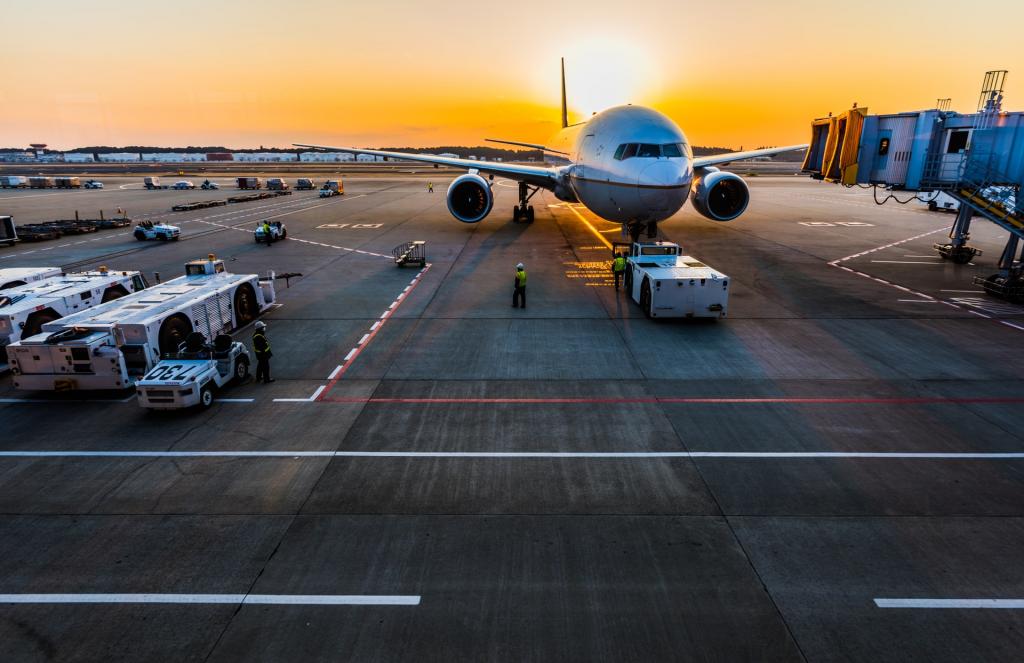Thessaloniki gets ready for its metro launch in November
The underground rapid transit lines have been under construction for almost two decades due to various project delays
 TheMayor.EU logo
TheMayor.EU logo 
Carbon savings from the joint initiative should add up to roughly 3.5 million trees in terms of carbon capture
Thanks to a partnership with OMV to use waste heat from fossil fuel production to achieve massive energy savings
Yesterday, Schwechat Airport (Vienna International Airport) announced they would team up with OMV to implement a new central heating project that will use waste heat from diesel production. The move is part of the airport’s push to become CO2-neutral by 2023.
According to OMV General Director Alfred Stern, the new system should be able to generate 21,000 tons of CO2 savings for the airport. Executive Director of Schwechat Airport, Günther Ofner, explained that that the new system would reduce the airport's carbon footprint by 85% compared to 2012.
The project was born from OMV’s desire to cut energy losses during fossil fuel production and make the process as clean as possible. They were looking for a place where they can channel all that wasted energy and Schwechat Airport was the perfect candidate as it consumes the rough heating equivalent of 1,500 households.
The project was presented yesterday at an online press conference where OMV Director Alfred Stern explained that the project could very well achieve carbon savings of up to 46,000 tonnes annually. That is the equivalent of around 3.5 million trees in terms of CO2 storage capacity.
Günther Ofner, the Executive Director of the airport was a bit more modest in his estimates and put the estimated savings at 21,000 tonnes. But, he also stressed that that is no small number and it would bring the airport’s emissions down by a whopping 85%, compared to 2012 levels. He also stressed that the airport plans to become carbon neutral by 2023.
Building a sustainable airport is no easy task, considering Schwechat is a big travelling hub and tourism is a major industry for nearby Vienna. Furthermore, there are a lot of logistical factors that have to be considered, so there are no bottlenecks and the flow of people and goods can go on unhindered.
Airport Authorities have been planning and working on various projects and systems to reduce, convert or offset emissions. One of them is the largest photovoltaic system in Austria, currently under construction on the airport grounds. The solar farm should, however, account for just 30% of the electricity demand.

The underground rapid transit lines have been under construction for almost two decades due to various project delays

Now you can get your wine in Talence by paying directly in Bitcoin

That’s because the state has to spend money on updating the railway infrastructure rather than subsidizing the cost of the popular pass

Rethinking renewable energy sources for the urban landscape

The examples, compiled by Beyond Fossil Fuels, can inform and inspire communities and entrepreneurs that still feel trepidation at the prospect of energy transition

Now you can get your wine in Talence by paying directly in Bitcoin

The 10th European Conference on Sustainable Cities and Towns (ESCT) sets the stage for stronger cooperation between the EU, national and local level to fast track Europe's transition to climate neutrality.

At least, that’s the promise made by the mayor of Paris, Anne Hidalgo

The underground rapid transit lines have been under construction for almost two decades due to various project delays

At least, that’s the promise made by the mayor of Paris, Anne Hidalgo

Hostal de Pinós is located in the geographical centre of the autonomous region

Despite its church-y name, the district has long been known as the hangout spot for the artsy crowds

Urban dwellers across the EU are having a say in making their surroundings friendlier to people and the environment.

Forests in the EU can help green the European construction industry and bolster a continent-wide push for architectural improvements.

Apply by 10 November and do your part for the transformation of European public spaces

An interview with the Mayor of a Polish city that seeks to reinvent itself

An interview with the newly elected ICLEI President and Mayor of Malmö

A conversation with the Mayor of Lisbon about the spirit and dimensions of innovation present in the Portuguese capital














